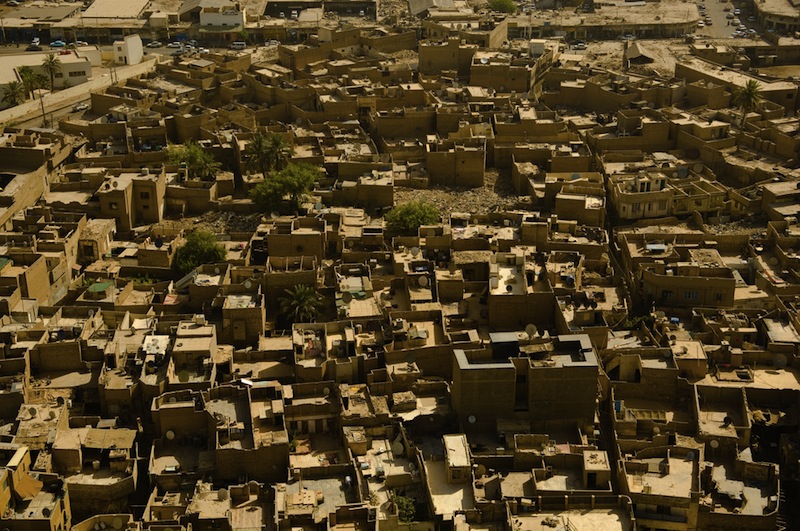Hailstorms, Wacky Weather Chilled Ancient Baghdad

Diaries and writings from ninth-century Baghdad provide a glimpse of the weird weather from the era, findings that could help researchers reconstruct past climate.
The surviving documents were written by historians and scholars during the Islamic Golden Age between A.D. 816 and A.D. 1009. They provide a new human record of climate, joining old ship's logs and World War II air force reports as one of the few sources for detailed information on historical weather.
"Climate information recovered from these ancient sources mainly refers to extreme events which impacted wider society, such as droughts and floods," study researcher Fernando Domínguez-Castro of the University of Extremadura in Spain said in a statement. "However, they also document conditions which were rarely experienced in ancient Baghdad such as hailstorms, the freezing of rivers or even cases of snow."
Many of the writings from the Islamic Golden Age have been lost in wars and upheaval. But some works survive, including those of Sunni scholar al-Tabari (A.D. 913), Kurdish historian Ibn al-Athir (A.D. 1233) and Egyptian scholar al-Suyuti (A.D. 1505). [Top 10 Battles for Control of Iraq]
Domínguez-Castro and his colleagues collected and analyzed these documents and found that they revealed a pattern of increasing frequency of cold-weather events in the early 10th century. July A.D. 920 was unusually cold, perhaps because of a volcanic eruption, Domínguez-Castro said. It snowed in Baghdad in 908, 944 and 1007. The only snow in living memory in the city was in 2008.
The findings suggest that Iraq's climate was more prone to unusually chilly events than it is today.
"Ancient Arabic documentary sources are a very useful tool for finding eye-witness descriptions which support the theories made by climate models," said Domínguez-Castro. "The ability to reconstruct past climates provides us with useful historical context for understanding our own climate."
Sign up for the Live Science daily newsletter now
Get the world’s most fascinating discoveries delivered straight to your inbox.
You can follow LiveScience senior writer Stephanie Pappas on Twitter @sipappas. Follow LiveScience for the latest in science news and discoveries on Twitter @livescience and on Facebook.

Stephanie Pappas is a contributing writer for Live Science, covering topics ranging from geoscience to archaeology to the human brain and behavior. She was previously a senior writer for Live Science but is now a freelancer based in Denver, Colorado, and regularly contributes to Scientific American and The Monitor, the monthly magazine of the American Psychological Association. Stephanie received a bachelor's degree in psychology from the University of South Carolina and a graduate certificate in science communication from the University of California, Santa Cruz.









